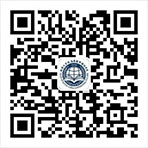
On November 4-6, 2016, a delegation led by Prof. Lyu Peiming, Vice President of Tongji University, visited Busan, South Korea and attended the 1st Shanghai-Busan Cooperation Forum co-hosted by the Institute for China & World Studies of Tongji University and the Center for Chinese Studies of Dongseo University. The forum brought together 17 Chinese academic and business representatives from the Institute for China & World Studies, the School of Political Science & International Relations (SPSIR), the International School, and the School of Economics and Management of Tongji University, as well as Fudan University and Jilin University; and 21 South Korean representatives from Dongseo University,Pusan National University, Dong-A University, Kyungsung University, Korea Maritime & Ocean University (KMOU), and Busan government departments and businesses.
This forum was held in Paradise Hotel Busan. At the welcome party held by DSU for Tongji on November 4, DSU President Chang Je-kuk, Tongji Vice President Lyu Peiming, and Ms. Wu Yi, Deputy Consul-General of the People’s Republic of China in Busan, addressed successively to congratulate the successful convening of the forum.
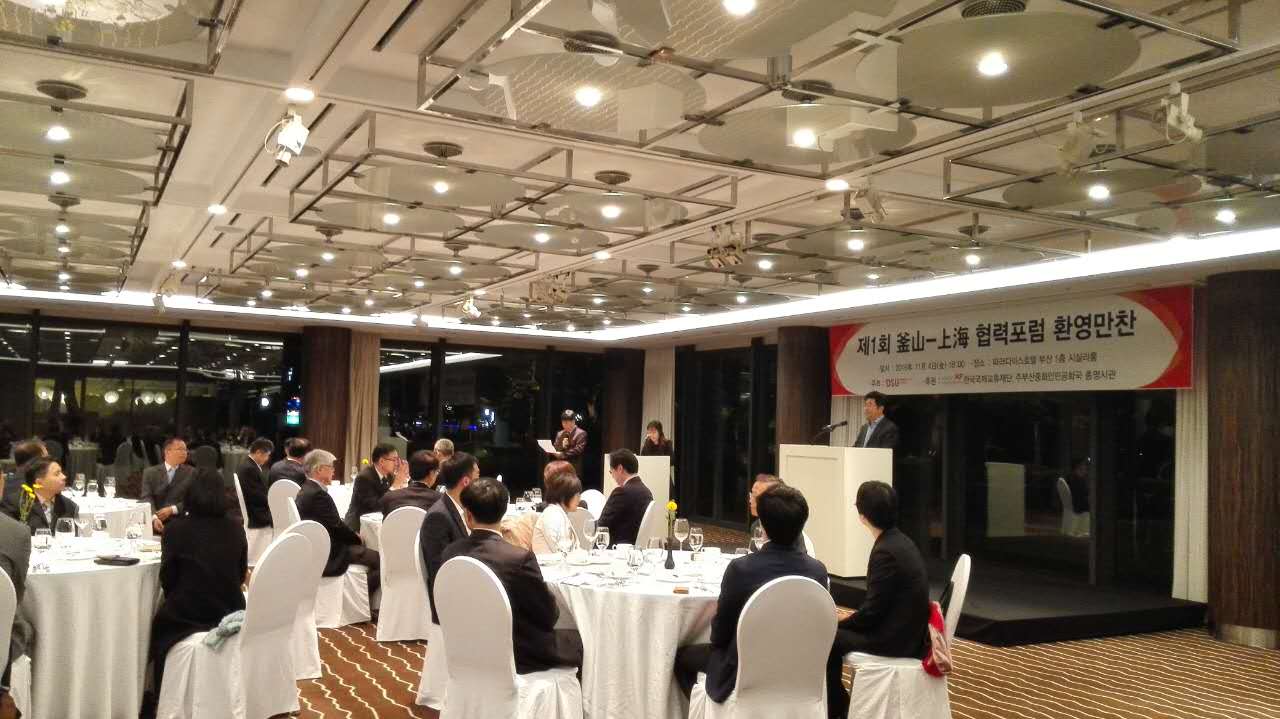
Ambassador Shin Jung-seung, Director of the Center for Chinese Studies of DSU, and Prof. Men Honghua, President of the Institute for China & World Studies and Dean of the School of Political Science & International Relations at Tongji, gave presentations about the cooperation between the two parties. On June 30, 2016, the Institute for China & World Studies of Tongji and the Center for Chinese Studies of DSU signed a memorandum of cooperation in Shanghai to jointly found the Shanghai-Busan Cooperation Forum. According to the memo, the two parties will take turns to hold the annual forum in Busan and Shanghai, bringing together former government officials and academic and business leaders in China and South Korea. The forum is designed to establish an institutionalized communication channel between DSU and Tongji, and promote the in-depth cooperation between the two sister cities of Busan and Shanghai, building itself into a high-end forum connecting the two cities and the two countries. This plan has received positive response and support from Tongji, DSU, the Shanghai People’s Association for Friendship with Foreign Countries, the Korea Foundation (KF), and the Consulate General of the Republic of Korea in Shanghai.
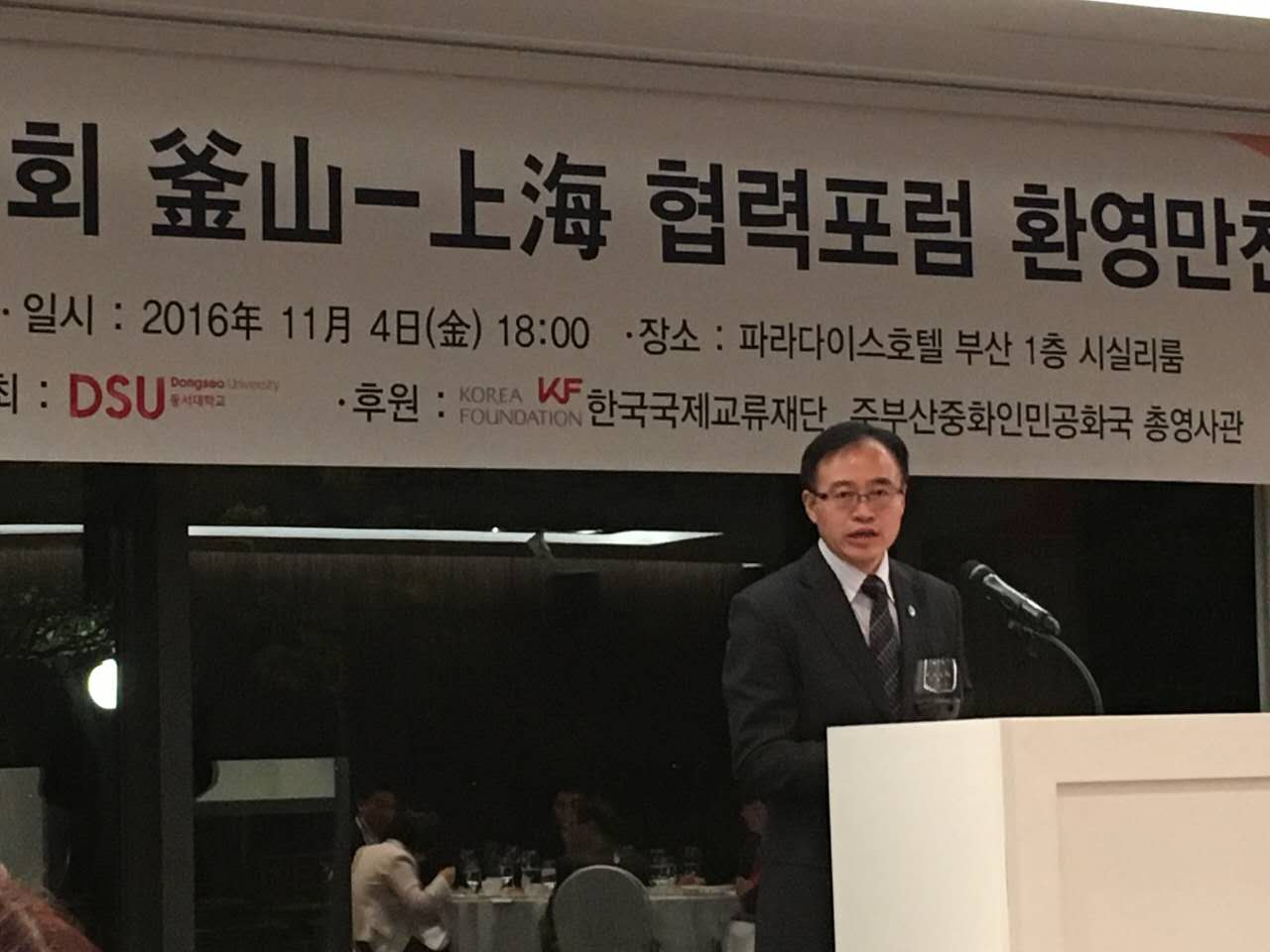
On November 5, 2016, the 1st Shanghai-Busan Cooperation Forum was officially held in the Conference Hall of Paradise Hotel Busan, attended by more than 30 Chinese and Korean experts and scholars. Mr. Seo Byung-soo, Mayor of Busan, and Ms. Wu Yi, Deputy Consul-General of China in Busan delivered speeches to express congratulations.
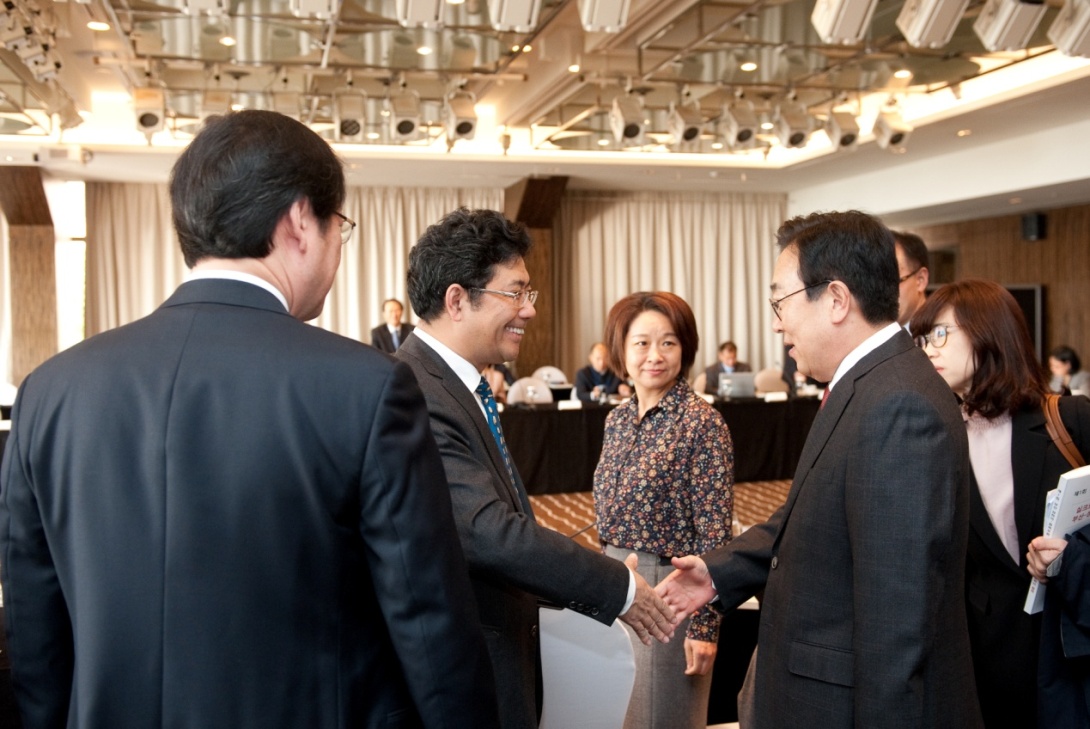
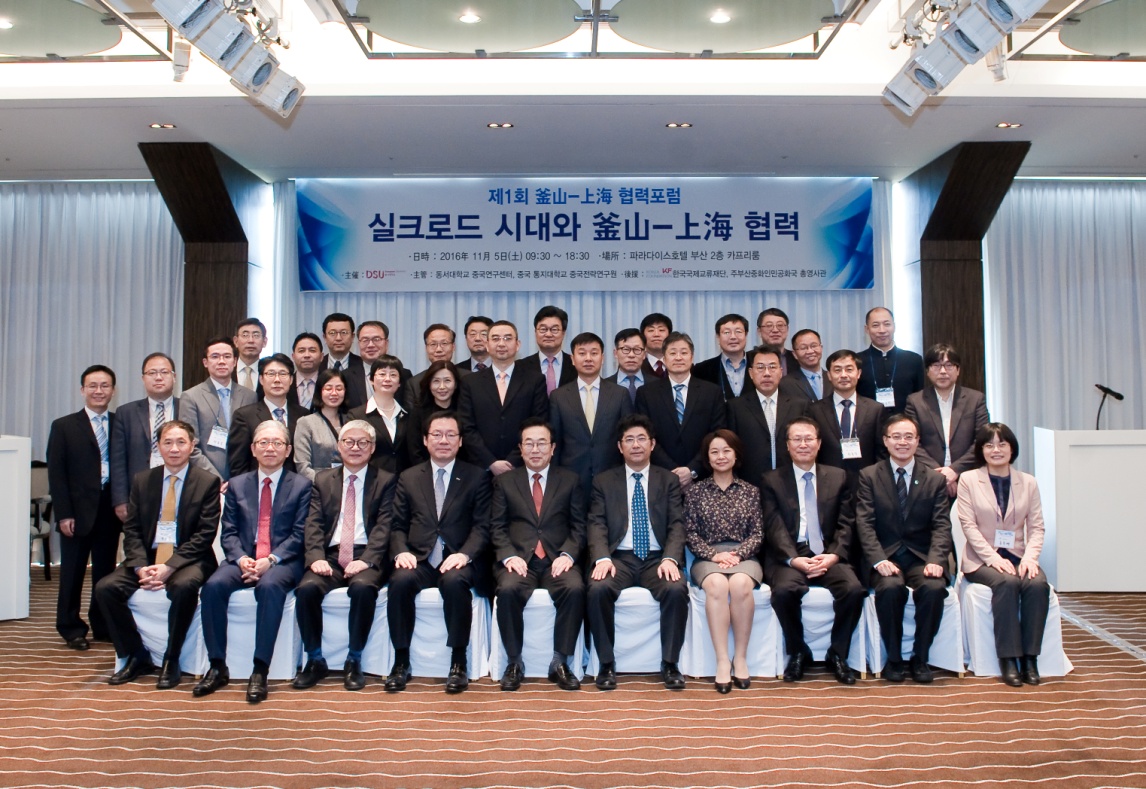
In his opening speech, Ambassador Shin Jung-seung, Director of the Center for Chinese Studies of DSU, first introduced the background of the forum and the main participants.
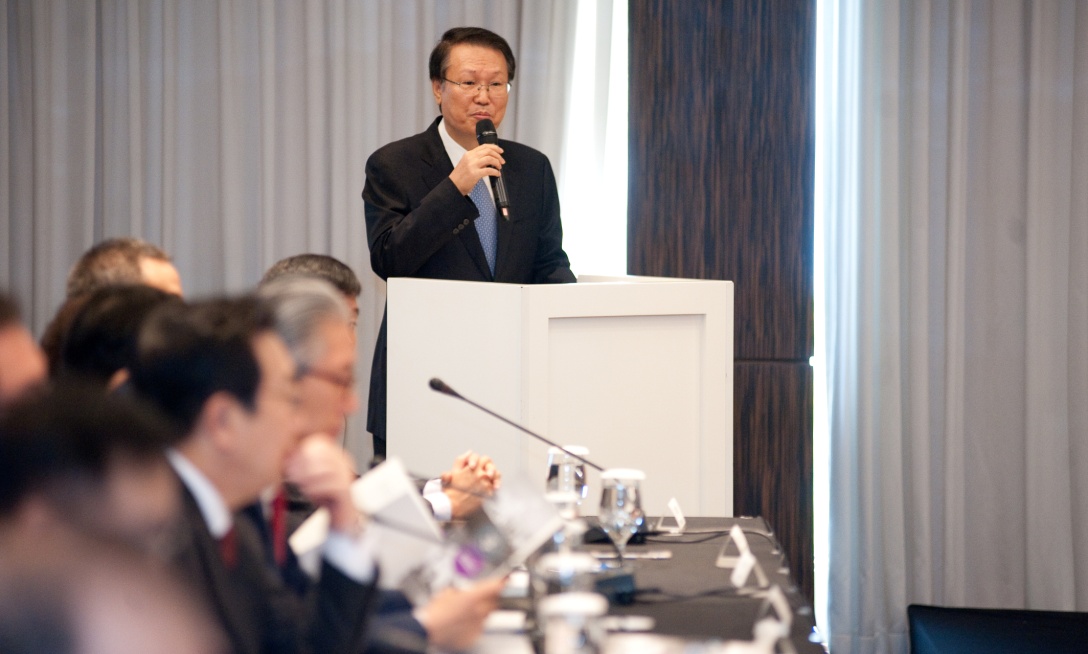
DSU President Prof. Chang Je-kuk warmly welcomed all the participants from China and South Korea.
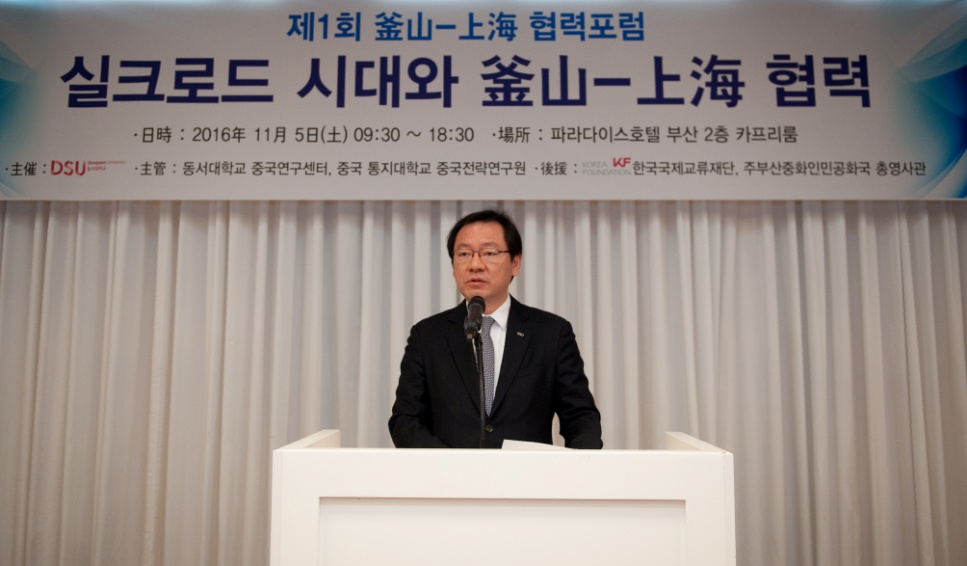
On behalf of the Busan Municipal Government, Mayor Seo Byung-soo congratulated the convening of the first forum, and looked forward to more fruitful cooperation under the Belt and Road Initiative between South Korea and China and between Busan and Shanghai.
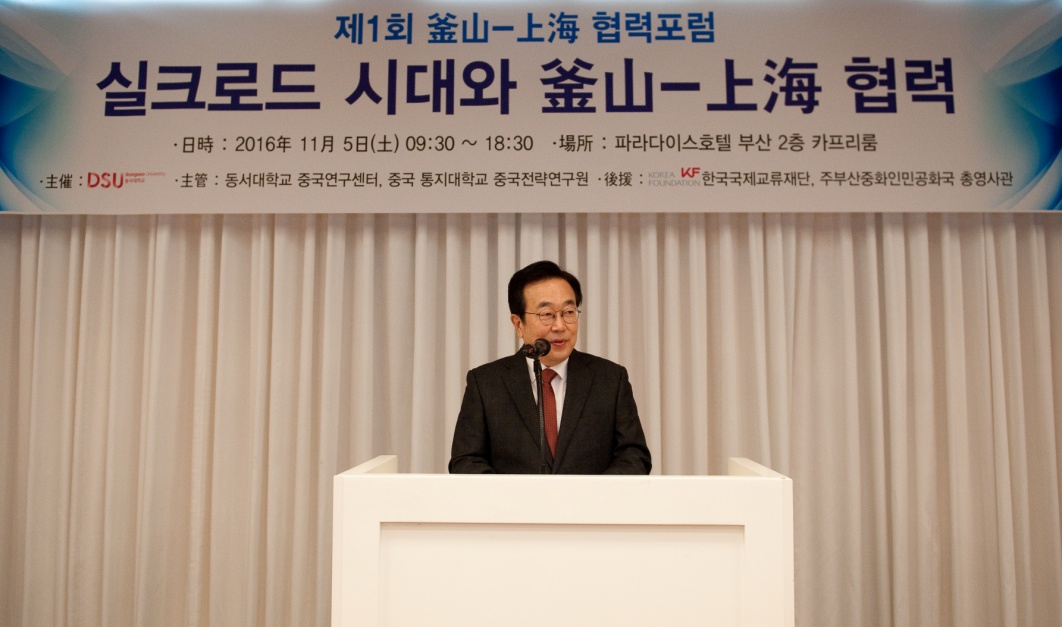
At the opening ceremony, Tongji Vice President Lyu Peiming and Deputy Consul-General Wu Yi expressing their gratitude to the hosts’ considerate preparations and looked forward to a complete success of this forum.
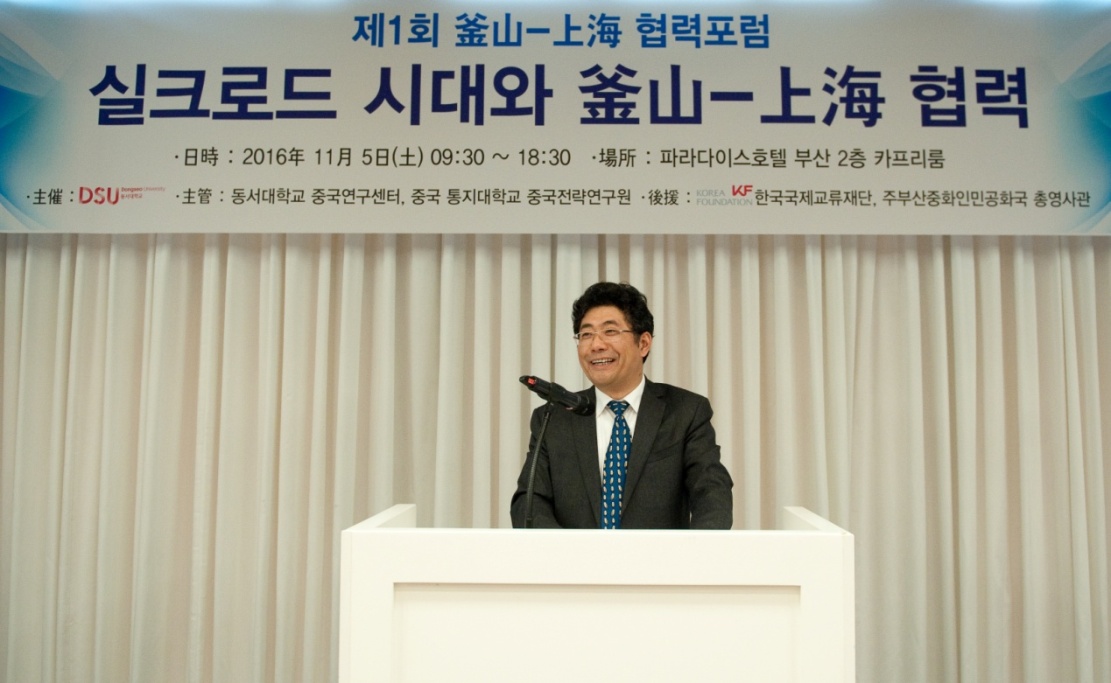
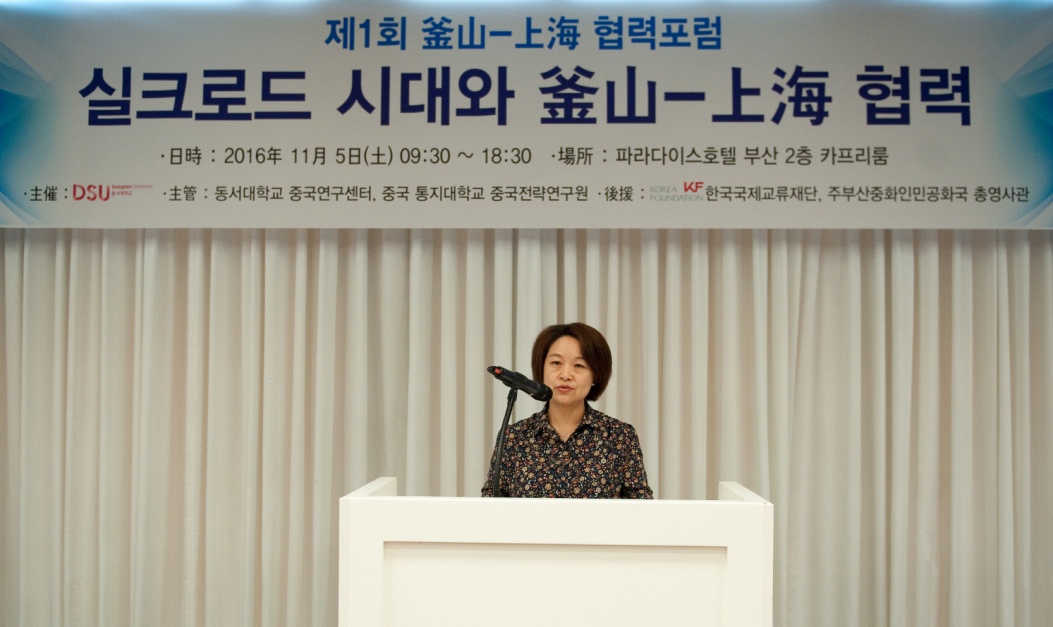
“The Belt and Road Initiative and Busan-Shanghai Cooperation” was the theme of this forum. In his keynote speech entitled “East Asian Situation and China-ROK Cooperation”, Mr. Yun Duk-min, Chancellor of KNDA, pointed out that Shanghai and Busan have common interests in trade, cultural exchanges, port construction and other areas, and there is broad space for cooperation between the two countries and cities, so scholars, government officials, business and media professionals from both sides should be forward-looking, and carefully explore the common interests and challenges and handle the bilateral relations in an inclusive, open and cooperative manner, in ultimate pursuit of mutual benefit and common prosperity.
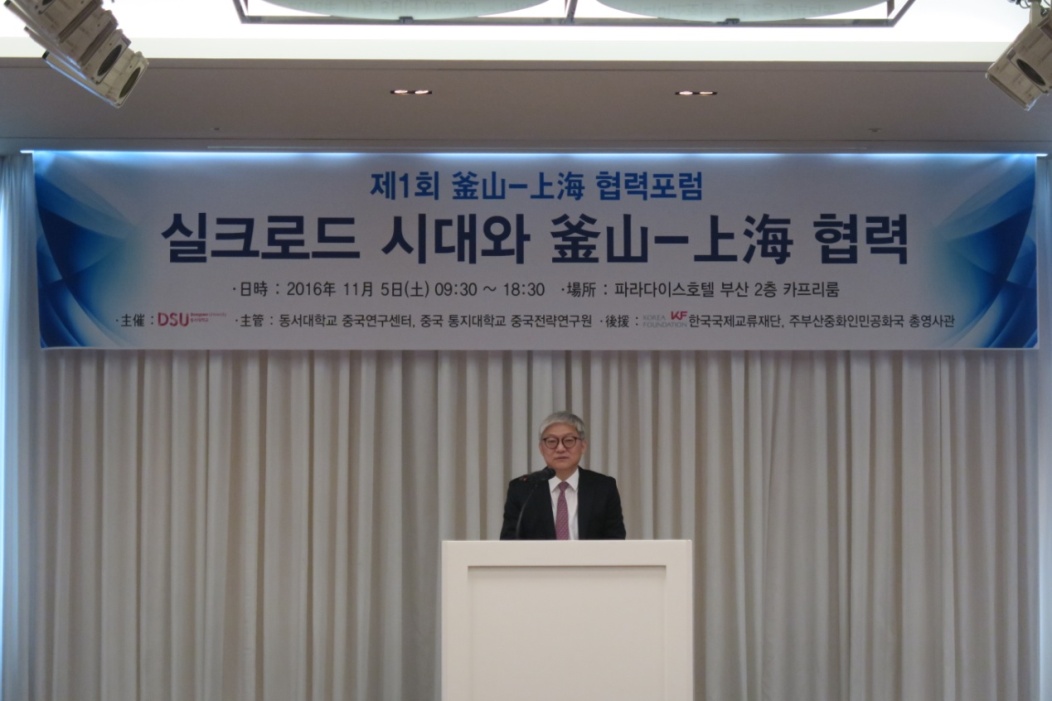
Then, the panel sessions kicked off. Amb. Shin moderated the first session themed “The Belt and Road Initiative and International Relations in East Asia”. The three panelists of this session included: Won Dong-wook, a professor at Dong-A University, Wang Cungang a professor at SPSIR, and Cha Chang-hoon, a professor at Pusan National University.
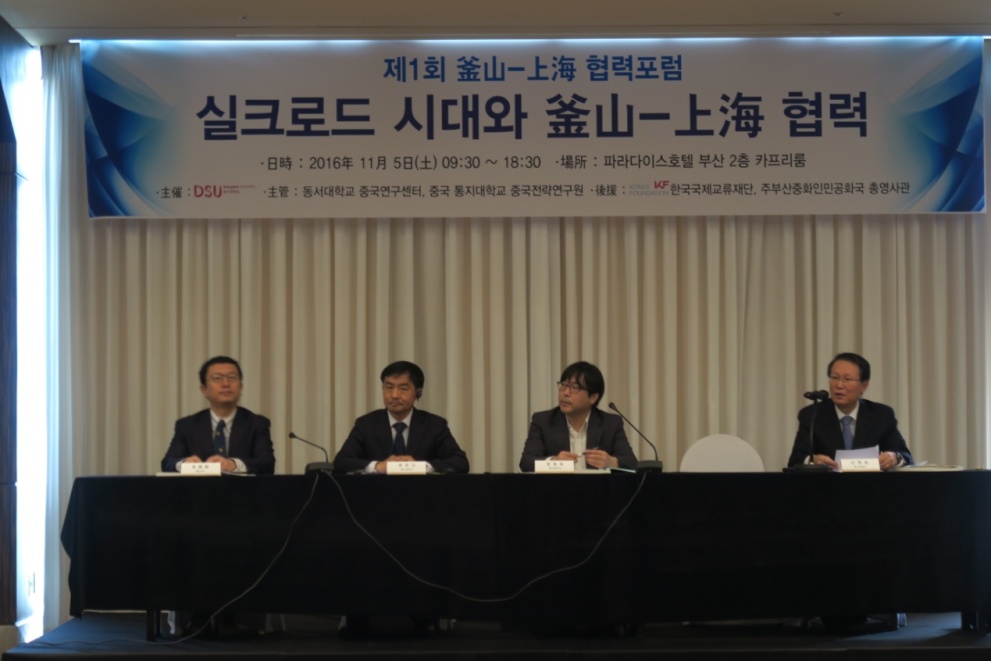
Tongji Distinguished Professor Men Honghua, Dean of SPSIR, moderated the second session themed “The Belt and Road Initiative and China-ROK Cooperation”. The four panelists of this session included: Kwag Bok-sun, a professor of Chinese Studies at Kyungsung University, Zhong Zhenming, an associate professor at SPSIR, Kim Tae-man, a professor of Northeast Asian Studies atKMOU, and Guo Rui, a professor at the School of Public Administration of Jilin University.
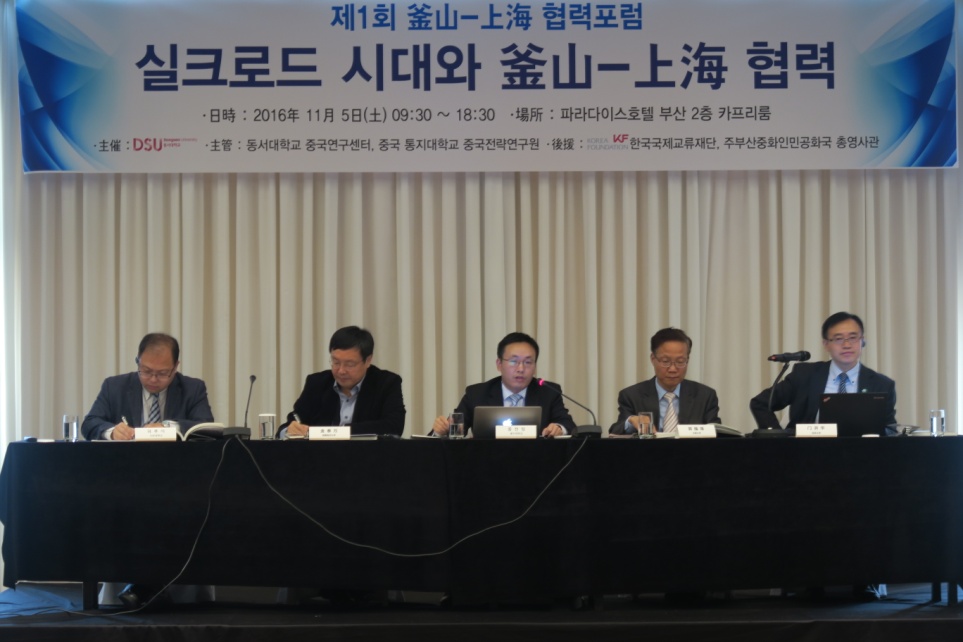
Mr. Hong Sung-hwa, an ambassador for international relations at Busan Municipal Government, moderated the third session themed “Opportunities for Deepening Shanghai-Busan Comprehensive Cooperation”. The three panelists of this session included: Han Chuanfeng, a professor at SEM of Tongji University, Jang Jung-jae a professor at Busan Development Institute, and Prof. Liu Shuyan, Dean of the International School at Tongji University.
The fourth session themed “Shanghai-Busan Economic and Cultural Exchange and Cooperation” was moderated by Prof. Wang Cungang, Vice President of the Institute for China & World Studies of Tongji University. The three panelists of this session included: Mr. Jang Tae-soon, Chief Marketing Officer at Korea National Tourism Organization, Mr. Wu Sizong, a professor at SEM of Tongji University, and Mr. Kwon So-hyun, head of business planning at Busan Port Authority.
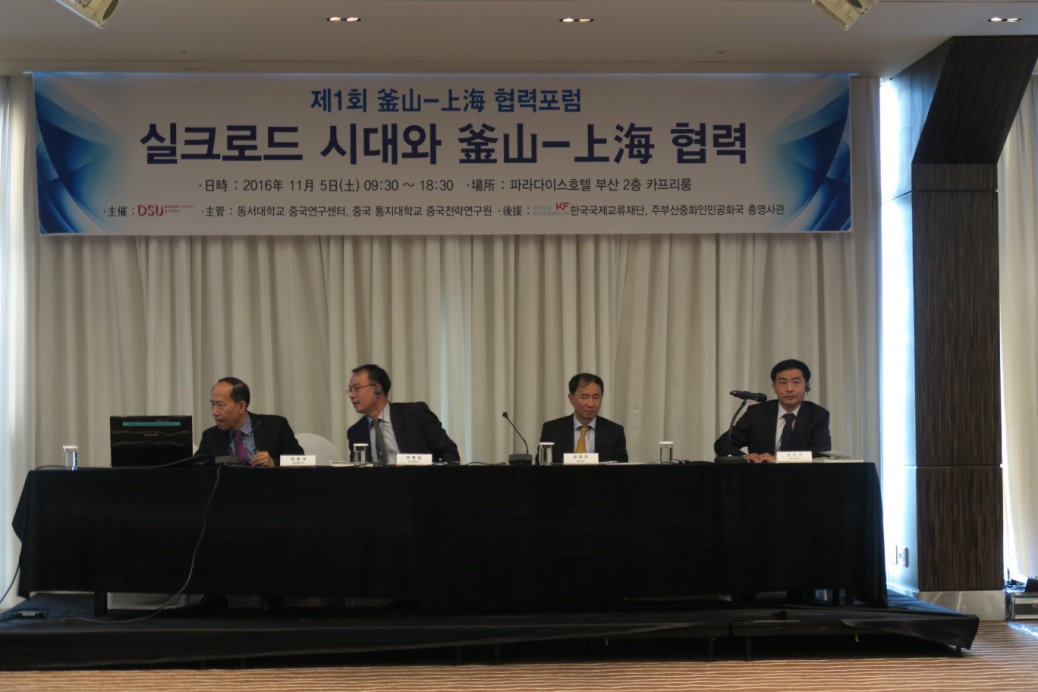
In the next open discussion, scholars expressed their own opinions. DSU President Chang and Tongji Vice President Lyu were happy to see the smooth progress of the forum and a broad consensus reached by the experts.
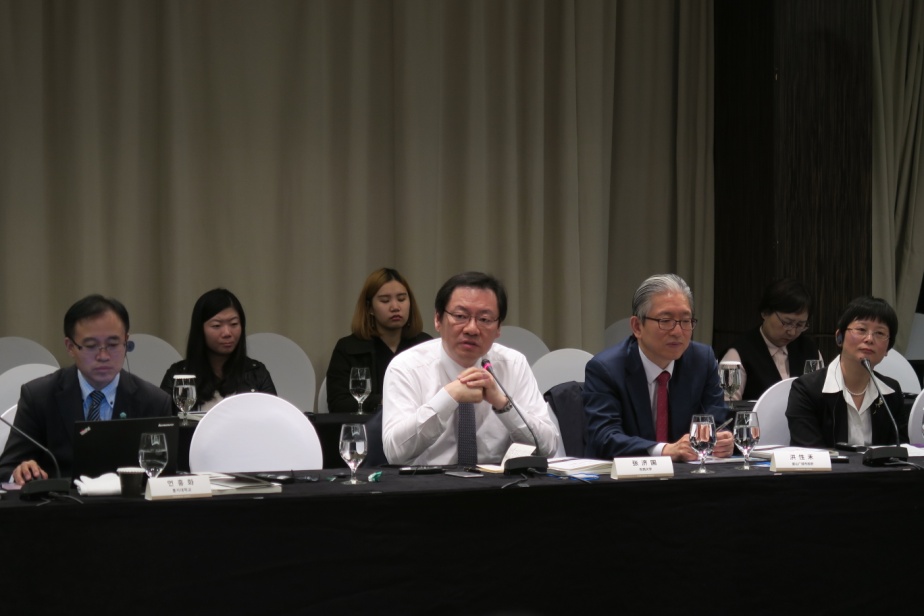
Vice President Lyu concluded that this was a successful and fruitful forum offering different ideas and policy recommendations. To develop healthy China-ROK relations, both sides should be forward-looking and cooperative, and should better understand each other. Shanghai-Busan cooperation is a case of specific cooperation between China and South Korea under the Belt and Road Initiative. Yet, the cooperation between the two economic hubs and port cities is far from enough, which necessitates a top-level design and more considerations. The Chinese side can envision the areas of cooperation, and the Korean companies can also make a difference in this cooperation.
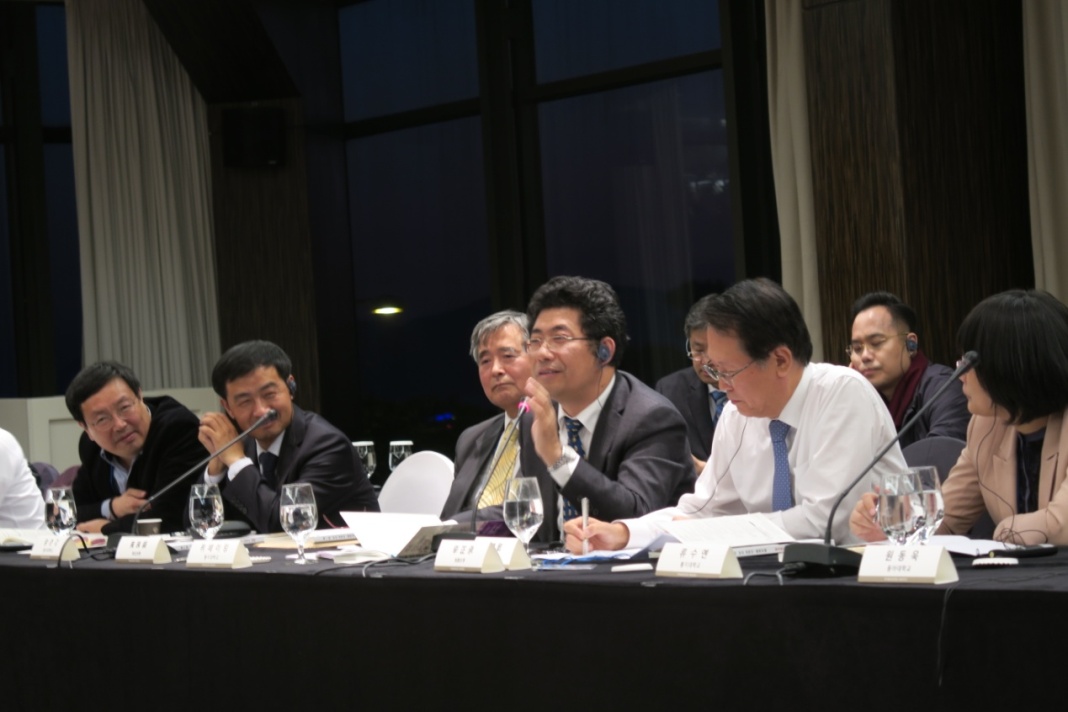
On the morning of November 6, accompanied by the Korean staff, the Tongji delegation investigated the construction of Busan Port and the development of Busan cultural industries.
The success of the 1st Shanghai-Busan Cooperation Forum will contribute to the development of the International Relations discipline of Tongji University, and to the friendly exchanges and cooperation between Tongji and DSU, between Shanghai and Busan, and between China and South Korea through the forum.
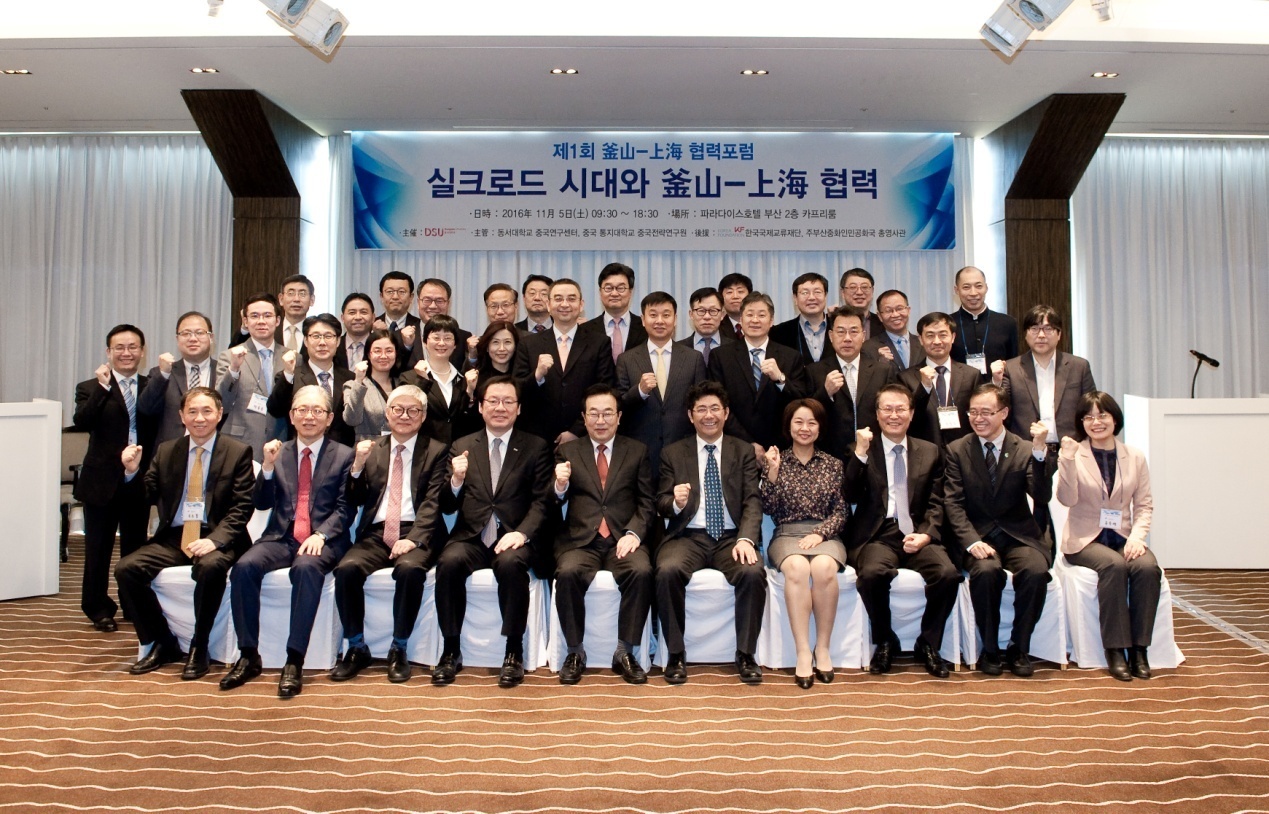
The two sides agree to hold the 2nd forum in mid-to-late May 2017, as a tribute to the 110th anniversary of the founding of Tongji University.




